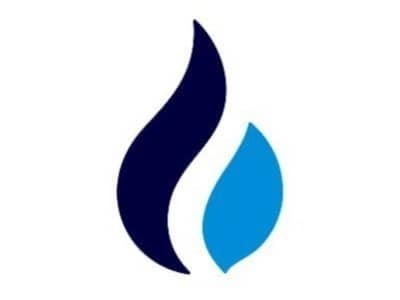Subscribe to wiki
Share wiki
Bookmark
HTX
The Agent Tokenization Platform (ATP):Build autonomous agents with the Agent Development Kit (ADK)
0%
HTX
HTX is a centralized cryptocurrency exchange platform for buying, selling, staking, and borrowing cryptocurrencies. HTX Global is one of the top ten largest cryptocurrency trading exchanges in the world, in terms of trading volume. [16][1]
| Header | Header |
|---|---|
| Body |
Overview
HTX, previously known as Huobi, has developed into a blockchain ecosystem that includes digital asset trading, financial derivatives, wallet services, research, investments, and incubation. Its operations focus on global expansion, technology-driven development, and applying technology for broader impact.
HTX has a notable presence in Asian markets and was originally based in China. Due to regulatory changes, it relocated to the Republic of Seychelles and maintains offices in South Korea, Japan, Hong Kong, and Singapore. A U.S. office was opened in 2018 but later closed due to regulatory constraints. [17] [19]
History
2013
HTX, originally known as Huobi, was established by Leon Li and Du Jun. Li was previously a computer engineer at Oracle, while Jun had experience founding companies like Golden Finance and Node Capital. In May 2013, the HTX Group acquired the original huobi.com domain. The company launched a simulation trading platform in August and began Bitcoin trading operations in September. [1] [2] [3]
2014–2016
In 2014, HTX received funding from angel investors and venture capital from Sequoia Capital, totaling $10 million. That year, the company acquired Bitcoin wallet provider Quick Wallet. By December 2013, its trading volume exceeded 30 billion yuan, making it a leading digital asset trading platform in China. By November 2016, its cumulative transaction volume reached 1.7 trillion yuan, accounting for a significant portion of global Bitcoin trading at the time. [2] [3]
2017
In September 2017, regulatory changes in China led to a ban on Bitcoin exchanges and ICOs. HTX restructured its operations to focus on international markets. In October, the company expanded to South Korea, followed by a headquarters in Seoul and trading activities commencing in March 2018. [4]
2018
HTX launched operations in Singapore in November, reporting significant trading activity in its first month. It also opened an office in Tokyo and partnered with the SBI Group to develop cryptocurrency exchanges in Japan. In August, the company acquired a majority stake in Pantronics Holdings, a Hong Kong electronics manufacturer, through a reverse takeover, allowing it to become publicly listed on the Hong Kong Stock Exchange. [4]
2019
A report by Bitwise Asset Management alleged that HTX engaged in wash trading to inflate trading volumes. HTX denied the claims and implemented measures to address such practices, resulting in a decline in reported trading volumes. The company’s U.S. subsidiary, HBUS, ceased operations by the end of the year. [5] [6]
2020–2021
HTX obtained a license through its brokerage subsidiary, HBIT, to conduct foreign exchange and money transfer operations in the United States. Regulatory developments led to the company restricting its services in Singapore and closing its Beijing-based entity. By the end of 2021, HTX announced the termination of user accounts in mainland China. [7] [8]
2022–2023
HTX continued to address regulatory developments while maintaining its global operations. In 2023, the company rebranded to support its global expansion and launched Shark Fin products on HTX Earn. It celebrated its 10th anniversary and received recognition at Blockchain Life 2023 for its contributions to cryptocurrency trading. [22] [23] [24] [25]
2024
HTX launched HTX DAO in January to support community-driven initiatives. By mid-year, the company integrated Fireblocks Off Exchange to enhance security and operational capabilities. In July, HTX ranked among the top three global platforms for spot trading volume, reflecting its operational growth. In November 2024, HTX confirmed the scheduled closure of the HECO Network, set for January 15, 2025.[24]

Technology
HTX Eco Chain
HTX ECO Chain, also known as Heco, is a public blockchain that launched on December 21, 2020. It is recognized for its high performance, low gas fees, and improved cross-chain user experience. The endogenous token of Heco is HT and it adopts the HPoS consensus mechanism. Heco is divided into 4 phases: Tinder, Spark, Flame, Blaze.
In November 2024, HTX announced the planned shutdown of the HECO Network on January 15, 2025. The network, designed to provide fast and low-cost transactions for decentralized finance (DeFi), supported a range of HRC20 tokens. However, due to increased competition and internal strategic changes, the network will cease operations. Users are advised to migrate or convert their tokens before the shutdown to avoid potential loss of funds. Detailed instructions will be provided.[9] [29]
Tinder
In December 2020, Heco launched its Tinder phase, with a stable and user-friendly system. This allowed developers to create and promote Dapps at a low cost, while users could easily engage with these Dapps on Heco. [10][11]
Spark
In October 2021, with the Spark phase, Heco's protocol underwent further optimization. The focus was on connecting Centralized Finance (CeFi) and Decentralized Finance (DeFi), making DeFi applications more accessible to a wider range of users. [12]
Flame
Flame introduces Layer2 technology to Heco. This is planned to boost the platform's performance and scalability while retaining the benefits of decentralization. [12]
Blaze
The Blaze phase involves the integration of large-scale commercial applications onto Heco. This support allows various traditional businesses to operate smoothly on the blockchain. [12]
HTX Mars Program
HTX Mars Program is a series of campaigns related to space exploration. Its first phase offers a $6 million ticket for a trip to Mars with Justin Sun, a member of the HTX Advisory Board, on a space journey aboard Blue Origin’s ship New Shepard. Users have to have a registered Tron chain address in order to participate in the event. [20][21]
Tokenomics
HT (Huobi) Token
HT is the native token of HTX, operating on the Ethereum blockchain with a supply of 200 million tokens. It is used across various applications within the HTX ecosystem. HT holders can access ecosystem benefits and rewards from sub-tokens, with value potentially influenced by repurchase and burn mechanisms.
Allocation
The total supply of 500,000,000 HT tokens is allocated as follows:
- 60% is designated for users who purchase the HTX pro Point package.
- 20% is reserved for user rewards and the operation of the HTX Exchange.
- 20% is allocated to the development team, with a disbursement period of four years. [28]
HTX Token
The HTX token aims to support HTX DAO's ecosystem by facilitating transactions, providing fee discounts, and enabling governance participation through voting. Its distribution focuses on development, partnerships, and community programs, with the Ecosystem Liquidity Pledge designed to enhance liquidity and encourage DeFi activity. HTX DAO operates as a decentralized entity, emphasizing transparency and autonomy. [26]

Allocation
The HTX token allocation is distributed across several key areas to support the development and growth of the ecosystem:
- 19% for Community Access Program
- 10% for Developer Grants
- 10% for Research and Development
- 10% for Ecosystem Supporters
- 15% for Partnerships and Collaboration
- 17% for Platform Development [27]
HUSD Stablecoin
HUSD is a fiat-collateralized stablecoin launched by HTX, issued as an ERC-20 token on the Ethereum blockchain. Each HUSD is backed 1:1 by USD held in Paxos-owned bank accounts. Launched in October 2018, HUSD aimed to consolidate four stablecoins (Paxos Standard, True USD, USD Coin, and Gemini Dollars) for use on HTX Global. However, due to unclear pricing and user concerns, HTX transitioned in July 2019 to a new ERC-20 version of HUSD, developed by Stable Universal and backed by Paxos. [13]
Milestones
2013
In September, HTX.com was launched. In November, HTX raised investment from ZhenFund and Angel Investment. In December, HTX became China's largest digital asset trading platform with a cumulative turnover of over 30 billion RMB. [4]
2014
In April, HTX became the world's largest digital asset trading platform with a cumulative turnover of over 120 billion RMB. [1]
2015
In April, HTX sponsored the "Digital Asset Research Project" at the Internet Finance Laboratory of Wudaokou Finance Institute of Tsinghua University (formerly the Graduate School of the People's Bank of China). [2]
2016
In June, the cumulative turnover reached 1 trillion RMB. In July, HTX Research published the first easy-to-understand and science-based work "Blockchain: Defining a New Financial and Economic Future". In November, the Cumulative turnover of HTX Group had reached 1.7 trillion RMB, accounting for more than 50% of the global bitcoin exchange market. In December, HTX co-sponsored China's first Fintech Digital Asset Alliance (Shenzhen) and the Fintech Research Institute under the guidance of the Shenzhen Municipal Government. In December, the Cumulative turnover of HTX Group reached 2 trillion RMB. [2]
2017
In July, the Cumulative turnover of HTX Group reached 4 trillion RMB; in October, HTX initiated its global strategic layout by establishing the HTX Korea Team and putting it into official operation; in November, HTX Global was officially launched and started operation with a cumulative turnover of the first month exceeding 4.6 billion USD. The Singapore Operation Team was also established in December, HTX completed its business layout in Japan with the Group's cumulative turnover exceeding 850 billion USD.
2018
In January, HTX Token was launched. In February, HTX Autonomous Digital Asset Exchange (HADAX) was established to support a vote for listing. In March, HTX signed a cooperation agreement with 360 Group on financial technology security services.
In March, HTX signed a cooperation agreement with the Data Science Institute of Imperial College London on the research of digital currency trading data. In March, HTX signed a cooperation agreement with Blockchain Global on co-building HTX Australia with strategic investment. In April, the Cumulative turnover of the Group exceeded 1 trillion USD.
In July, HTX Cloud was officially launched. In August, the Group acquired Pantronics Holdings Ltd (01611.HK), a Hong Kong-based listed company. In August, the cumulative turnover of the Group exceeded 1.2 trillion USD. In September, the Group acquired BitTrade, a licensed exchange based in Japan. [2]
2020
In September, HTX launched crypto-saving products to compete with DeFi yield farming. Users receive an annual yield of 8% and 3.5%, respectively, for their deposited USDT and Bitcoin. [18]
2023
In August, HTX announced a strategic partnership with TradingView. Users will be able to directly view the real-time prices of cryptocurrencies on HTX with TradingView. It also allows them to create accounts and trade on HTX without having to switch between platforms.
Team Members
- Chairman and Co-Founder: Leon Li
- Co-founder, CEO of New Huo Tech: Du Jun
- COO: Jiawei Zhu
- CTO: Xianfeng Cheng
- CFO: Chris Lee
- CSO: Simon Wu
- CHO: Bessie Pang
- Advisor: Justin Sun
See something wrong?
The Agent Tokenization Platform (ATP):Build autonomous agents with the Agent Development Kit (ADK)
